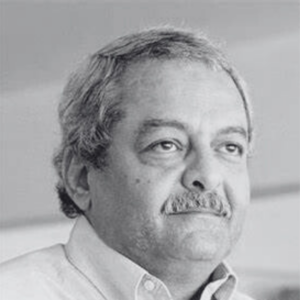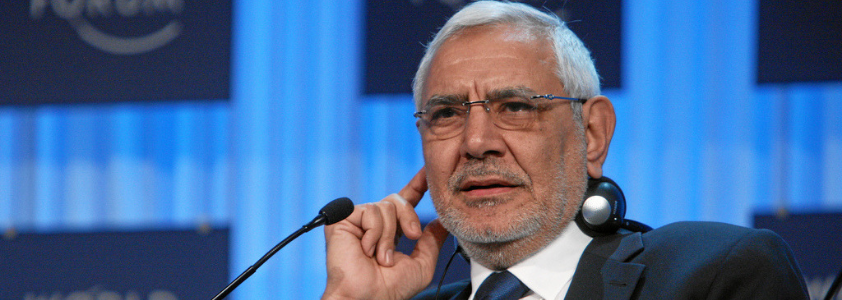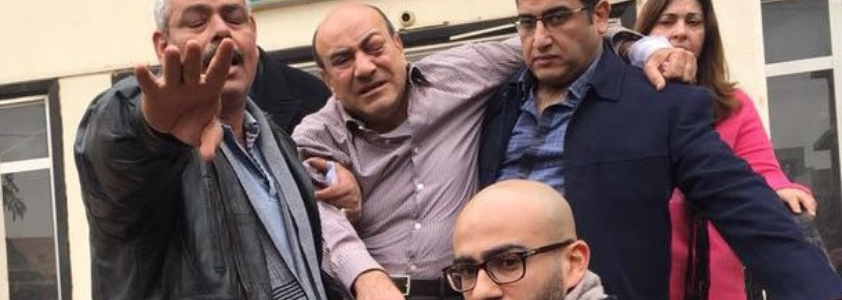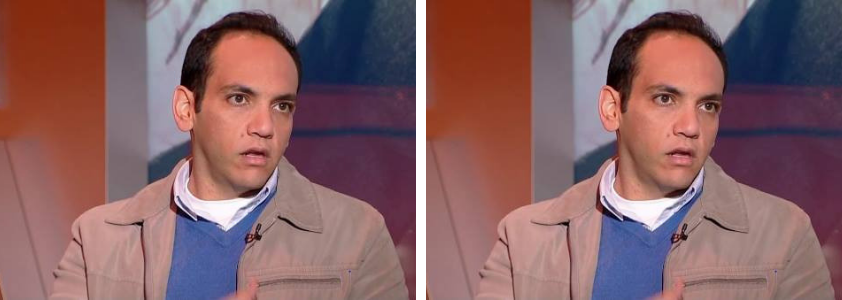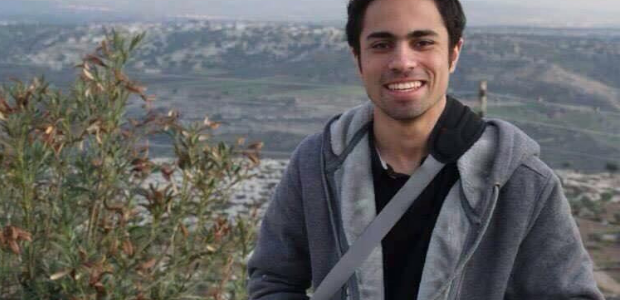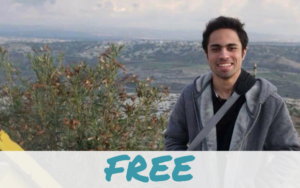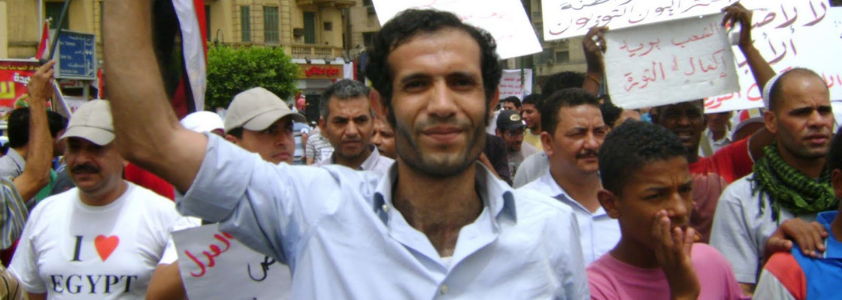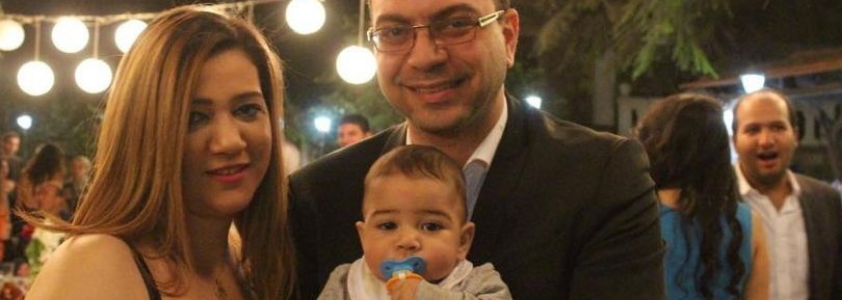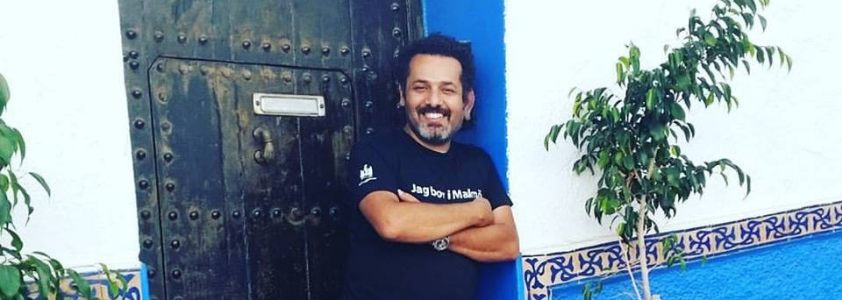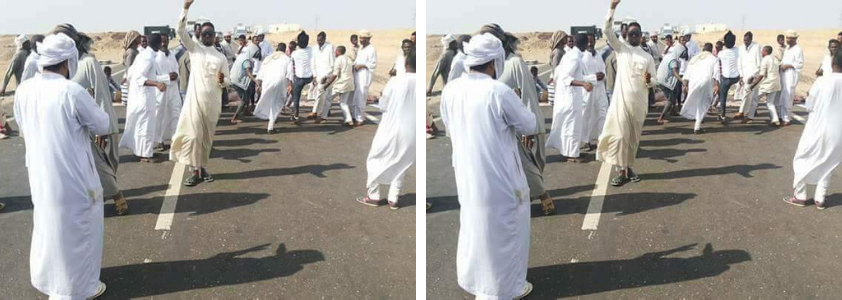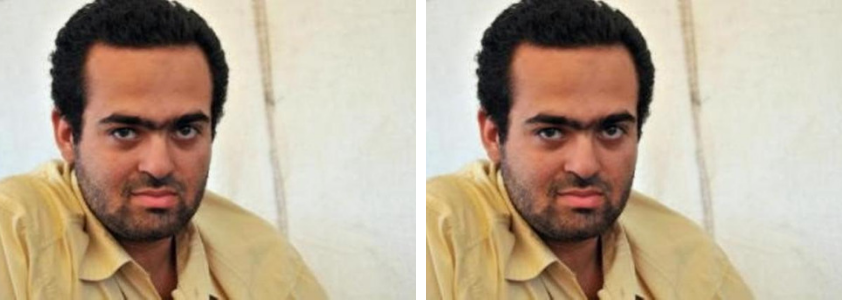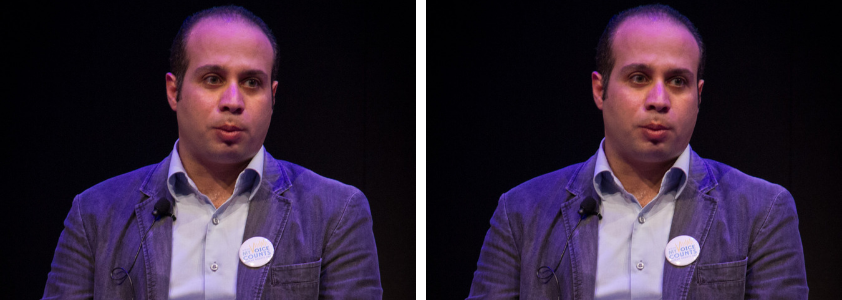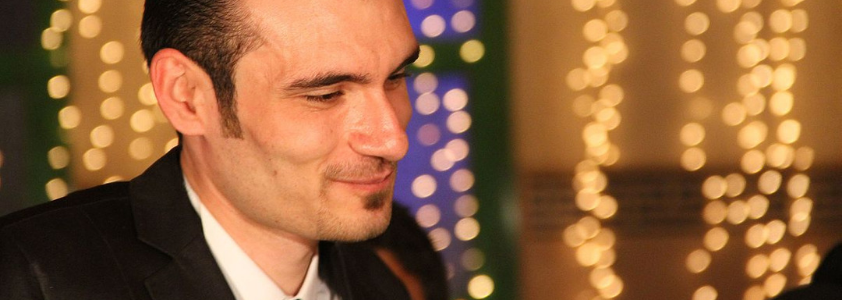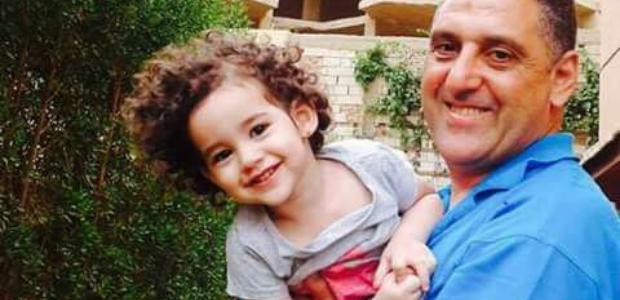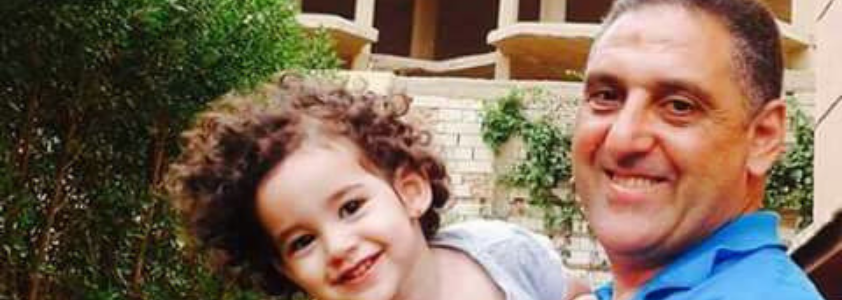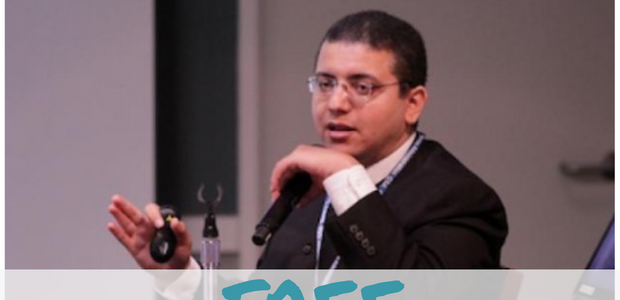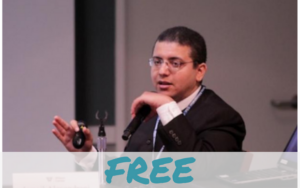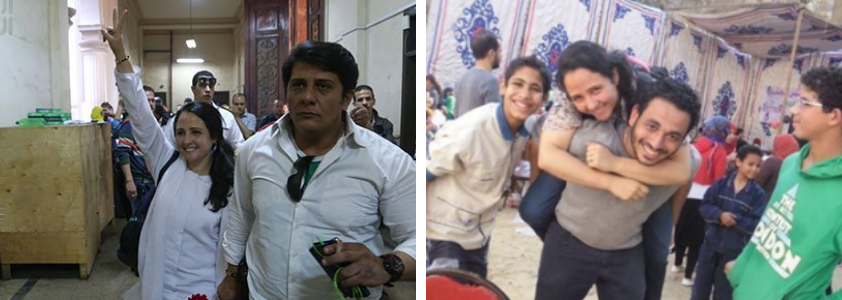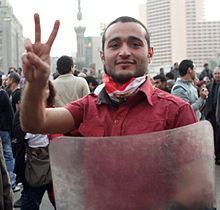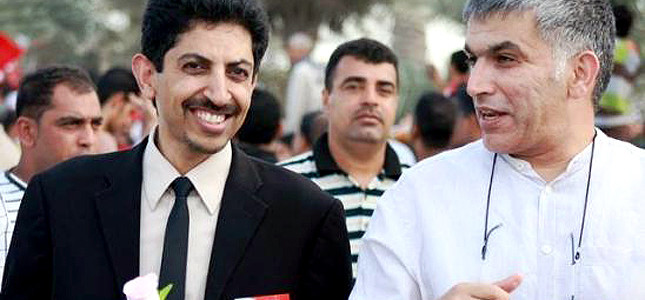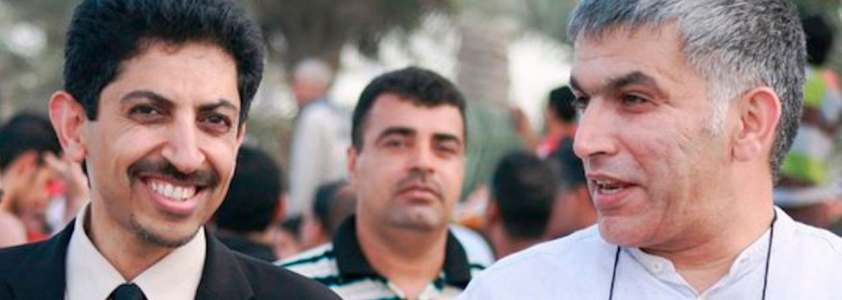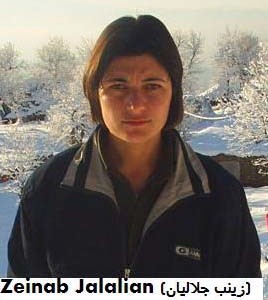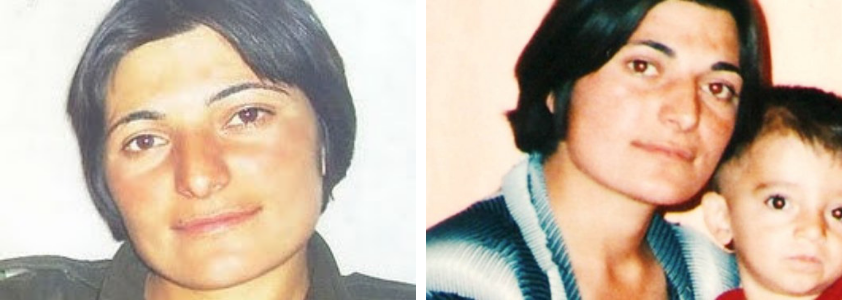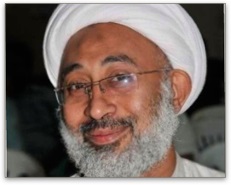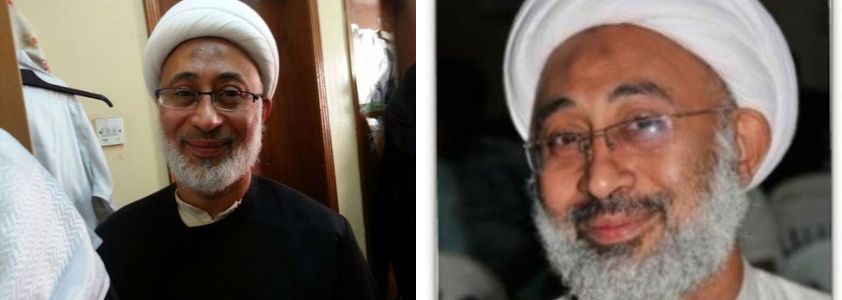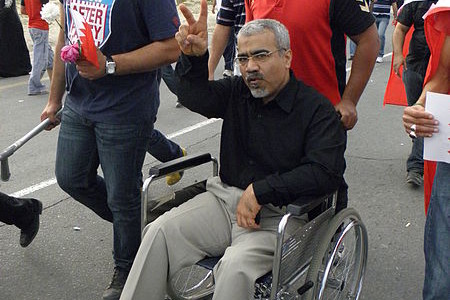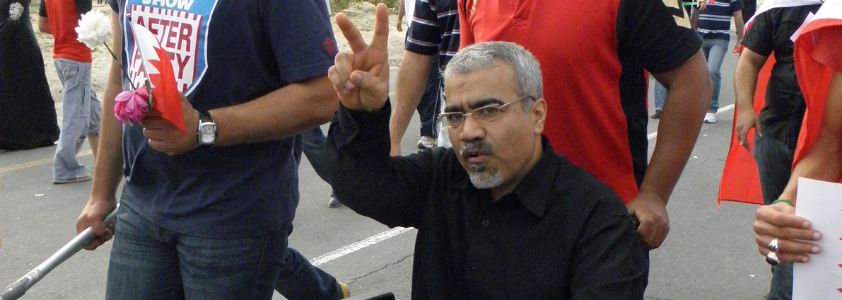Over 60 human rights organizations from across the world have signed the below open letter to show solidarity with the Egyptian Initiative for Personal Rights and urge that Egyptian authorities immediately and unconditionally release Karim Ennarah, Mohammed Basheer, and Gasser Abdel-Razek.
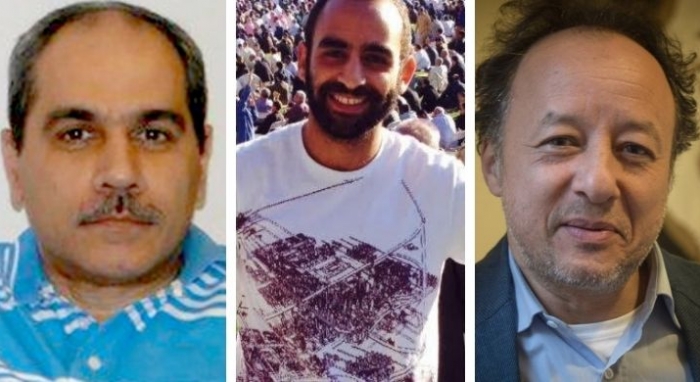
We stand in solidarity with the Egyptian Initiative for Personal Rights (EIPR). We are human rights organizations and initiatives deeply concerned about the unprecedented and alarming escalation against EIPR, one of Egypt’s oldest and most reputable human rights organizations. Since 15 November 2020, three employees of the organization were arbitrarily arrested and detained by the Egyptian security forces, Karim Ennarah Director of EIPR’s Criminal Justice Unit, Mohammed Basheer, EIPR’s Administrative Manager, and Gasser Abdel-Razek, the Executive Director of EIPR.
We are extremely concerned about the unfounded accusations levelled against Mohammed Basheer during his questioning at the Supreme State Security Prosecution’s office, which included joining an unnamed terrorist organization and “committing one of the crimes of funding terrorism”. We were appalled to hear that such trumped charges can be made against an administrative manager at an established NGO and legal aid organization. Not to mention EIPR is one of the few independent human rights NGOs remaining in Egypt who continues to work publicly and to engage with state institutions.
Mohammed Basheer was arrested from his home in the early hours of Sunday, 15 November, by a heavily armed security force, and detained incommunicado in a security facility for 12 hours before being transferred to the Supreme State Security Prosecution (SSSP). He was questioned, respectively at the National Security Agency without a lawyer and then at the SSSP, about a visit by several diplomats to the offices of EIPR, about their criminal defense work and their publications. These are perfectly legitimate activities for a human rights and legal aid organization to undertake and do not justify in any way the prosecution’s decision to detain him for 15 days. Nor does it explain the accusations of joining a terrorist organization, spreading false information, undermining public security – charges that were not supported by any evidence.
Just days after the arrest of Basheer, the authorities arrested Karim Ennarah on 18 November 2020, while he was sitting in a restaurant in Dahab, South Sinai, while on vacation. Security forces had gone to Ennarah’s home in Cairo early in the morning of 17 November 2020, while he was not there. Security forces confiscated Ennarah’s laptop, phone and personal belongings during his arrest. After an investigation that lasted for four hours, the Supreme State Security Procurator ordered Ennarah’s pretrial detention for 15 days per case 855 of 2020 pending investigations over fabricated charges of “joining a terrorist group”, “using a social media account to spread false news” and “spreading false news”. The prosecutor said that this is based on security investigations showing that Karim “agreed with a group inside prisons to spread false rumors that could undermine public peace and public safety.”
On 19 November, EIPR reported that security forces had arrested Gasser Abdel-Razek from his home in Cairo and taken him to an unknown location. He later appeared and was interrogated at the State Security Prosecution, who ordered his pretrial detention for 15 days in case 855 pending investigations into the unfounded charges of “joining a terrorist group”, “disseminating false statements to undermine public security”, and “using the internet to publish false news”.
We believe that Karim Ennarah, Mohammed Basheer, and Gasser Abdel-Razek are being targeted solely because of the legitimate work of EIPR, in order to intimidate EIPR staff members and the Egyptian human rights community at large and therefore their detention is arbitrary. We are also increasingly concerned about the ever-tightening space for organizations like EIPR and others who choose to carry out their work publicly in Egypt, and who are being punished for trying to uphold human rights and constitutional norms in the country.
We are writing to you because we are counting on your support and advocacy for the immediate and unconditional release of Mohammed Basheer, Karim Ennarah, and Gasser Abdel-Razek and the dismissal of the case against them.
Signatories:
- Action by Christians for the Abolition of Torture (ACAT-France)
- Akahata A.C. (Argentina)
- Amnesty International
- Arab Network for Knowledge about Human rights (ANKH association)
- Arab NGO Network for Development (ANND)
- ARCI
- ARTICLE 19
- Asian Forum for Human Rights and Development (FORUM-ASIA)
- Asian Legal Resource Centre (ALRC)
- Association Beity (Tunisie)
- Association de Défense des Libertés Individuelles (ADLI-Tunisie)
- Association for Progressive Communications – APC
- Association Tunisienne des Femmes démocrates (ATFD-Tunisie)
- Association Yakadha pour la démocratie et l’État civique (Tunisie)
- Awan Organization – Iraq
- Cairo Institute for Human Rights Studies (CIHRS)
- Center for Reproductive Rights
- Centro de Estudios Legales y Sociales (CELS)
- CIVICUS: World Alliance for Citizen Participation
- Coalition of African Lesbians (CAL)
- Committee for the Respect of Liberties and Human Rights in Tunisia (CRLDHT)
- Conectas Direitos Humanos
- DefendDefenders (East and Horn of Africa Human Rights Defenders Project)
- DIGNITY – Danish Institute Against Torture
- GPPAC-Southeast Asia
- EuroMed Rights
- Federation for Women and Family Planning (Poland)
- Feminist Alliance for Rights (FAR)
- Forum Tunisien pour les Droits Économiques et Sociaux (FTDES-Tunisie)
- Freedom House
- Gulf Centre for Human Rights (GCHR)
- ILGA World
- Initiatives for International Dialogue (IID)
- Initiative franco-égyptienne pour les Droits et les Libertés
- International Federation for Human Rights (FIDH), in the framework of the Observatory for the Protection of Human Rights Defenders
- International Service for Human Rights
- International Women’s Rights Action Watch Asia Pacific (IWRAW Asia Pacific)
- La Coalition Tunisienne Contre la Peine de Mort
- Lawyer’s Rights Watch Canada (LRWC)
- Lawyers for Justice in Libya
- LIBERA associazioni nomi e numeri contro le mafie (Italy)
- Ligue Tunisienne de Défense des droits de l’Homme
- MENA Prison Forum
- MENA Rights Group
- Minority Rights Group International (MRG)
- Pan Africa ILGA
- Project on Middle East Democracy (POMED)
- RAWSA ( Right and Access of Women to Safe Abortion) MENA network
- RESURJ Alliance
- Saferworld
- Sexual Rights Initiative
- Solidar
- Solidarity Is Global Institute (JORDAN)
- Syrian Center for Media and Freedom of Expression
- Tamazight Women’s Movement (LIBYA)
- The Egyptian Human Rights Forum (EHRF)
- The Freedom Initiative (Washington DC)
- The Tahrir Institute for Middle East Policy (TIMEP)
- Women’s March Global
- The World Movement for Democracy
- World Organisation Against Torture (OMCT), in the framework of the Observatory for the Protection of Human Rights Defenders


